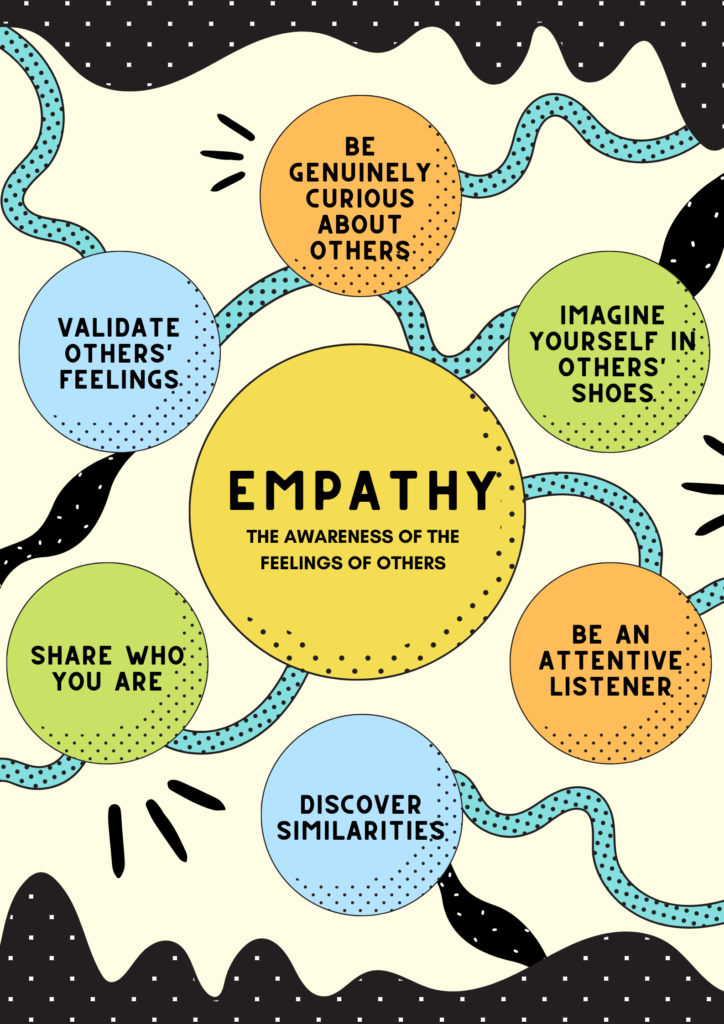
In an era defined by rapid change and heightened consumer expectations, small businesses are finding their path to success illuminated by a powerful tool: empathy maps. This in-depth exploration aims to unravel the multifaceted importance of empathy maps in small business operations, shedding light on how this tool can revolutionize customer engagement, spark innovation, and propel growth in an ever-evolving market.

1. Understanding Empathy Maps: Empathy maps serve as a visual compass for businesses, encapsulating the nuanced thoughts, emotions, and experiences of customers. By delving into the components of an empathy map – the user’s pains, gains, thoughts, and feelings – businesses gain a comprehensive understanding of their customer base, forming the foundation for strategic decision-making.
2. Customer-Centric Approach: A paradigm shift toward a customer-centric approach is evident in successful small businesses. By prioritizing customer understanding, these enterprises cultivate a culture that revolves around meeting specific needs, fostering authentic connections, and ultimately, ensuring long-term sustainability in a competitive market.
3. Enhancing Customer Experience: Empathy maps offer small businesses a roadmap to optimize customer experiences. By mapping the customer journey, businesses can pinpoint pain points, identify areas for improvement, and deliver solutions that resonate with customers, thereby enhancing overall satisfaction and loyalty.
4. Driving Innovation: Innovation thrives on understanding, and empathy maps provide the necessary insights for small businesses to innovate effectively. By deciphering customer needs and preferences, businesses can identify gaps in the market, leading to the development of products and services that not only meet but exceed customer expectations.
5. Effective Communication: Communication is the lifeblood of any small business. Empathy maps empower teams with a shared understanding of the customer, fostering more effective communication across departments. This alignment ensures that marketing, sales, and customer service efforts resonate cohesively, fortifying the brand’s voice and impact.
6. Building Brand Loyalty: Brand loyalty is intricately linked to authentic customer connections. Small businesses that invest in understanding their customers through empathy maps can build trust, foster emotional connections, and create a brand narrative that resonates, resulting in sustained customer loyalty and advocacy.

7. Agile Decision-Making: The pace of business demands agile decision-making. Empathy maps equip small businesses with the ability to make informed decisions swiftly. By staying attuned to customer perspectives, businesses can navigate market shifts, respond to evolving needs, and outmaneuver competitors in the quest for market leadership.
8. Cost-Efficiency: Empathy maps are not just a strategic imperative but a cost-effective tool. Small businesses can avoid misdirected investments by aligning their products and services with customer needs. This precision in resource allocation ensures a more efficient use of budget, leading to a higher return on investment.
9. Implementing Empathy Maps in Small Businesses: Practical implementation is key. From conducting customer interviews to analyzing data and regularly updating empathy maps, small businesses can establish an ongoing process to stay connected with their customer base, ensuring that their strategies remain relevant and responsive.
Empathy maps emerge as the cornerstone for small business success in an era defined by customer empowerment and rapid change. As businesses weave empathy into their DNA, they not only align with ethical imperatives but position themselves strategically for sustained growth and resilience in the ever-evolving landscape of the modern market.
